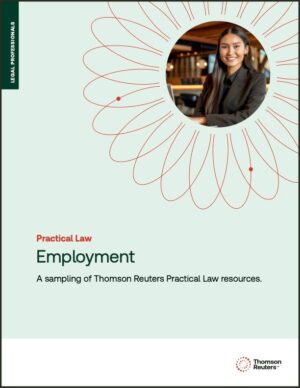Should I Marry Someone With Large Student Loans When Mine Are Almost Paid Off?
After all, student loans are one of the reasons why young people are delaying marriage. Should you do it anyway?

Your other ball and chain.
Valentine’s Day is coming soon and you and your date plan to have a special evening. You suggest dinner at the exclusive gourmet restaurant where you secured a reservation. Your date reluctantly agrees after complaining about questionably priced Valentine’s Day prix fixe specials which are usually unsold leftovers.
While the two of you are enjoying the dry aged steak paired with the wine whose label you cannot pronounce, you suggest the possibility of getting married. You tried to sell the practicality of it to your date. Living together would mean spending less on rent and utilities. The money saved can be used to possibly save for a house, retirement, future child rearing expenses, and to pay down student loans.

Lawyers Have The Power To Protect The Vote This Election Season
And then you wonder how much student loans your future spouse owes. The two of you discussed it briefly during the second or third date. But you never asked how much because you didn’t want to come off as being overly money focused. As time passed, you never mentioned it because your date had a good job and was frugal and so you assumed it will be paid off eventually.
So you lay your cards on the table. Your student loan balance is $50,000 and are on track to pay it off in 10 years or less.
Your future spouse owes $275,000 (at least the last time the balance was checked) which are both federal and private loans. The federal loans are on an income-based repayment plan until the loans are forgiven in 18 years. The private loans are on an interest only payment plan.
You decide to pass on the lava cake dessert because something inside you already erupted like a volcano.
Sponsored

Tackling Deposition Anxiety: How AI Is Changing The Way Lawyers Do Depositions

Ranking The Law Firms Lawyers Love

Lawyers Have The Power To Protect The Vote This Election Season
The above is not an uncommon scenario among couples contemplating marriage. One person has little to no student debt while the other’s debt is insurmountable and will likely stay for the rest of his or her life or until the loans are forgiven.
There are many articles online that provide advice on managing student loan debt. Most advise having a payoff plan, a budget, and exercising delayed gratification.
But in this case, figuring out how to manage the debt can get complicated and contentious. For example, the spouse with little to no loans will likely want to maximize income and acquire assets for financial security and enjoyment. The spouse on IBR will want to minimize assets in order to minimize the cancellation of debt tax bomb when the student loans are forgiven.
Also, each person may have a different attitude towards debt which can create conflict. One wants to be debt free while the other’s debt is impractical to pay off considering loan forgiveness options. Or he or she wants to live the YOLO lifestyle and may be ignoring the debt altogether.
Should the couple combine their income to pay off the large debt of one spouse? That depends. If the debt can be paid off without too much financial hardship, then this is a sensible option. But some spouses may not want to do this if it means living a lower standard of living for years, particularly if they lived this way to pay off their own debt. This can also create resentment.
Sponsored


Legal Contract Review in Under 10 Minutes? Here’s How
We live in a time where divorces are more common than they should be and money (or lack thereof) is a leading cause of it. So can a marriage work where one spouse has little student loan debt while the other has a large one? Of course it can. While a financial plan will depend on individual circumstances, I recommend following a few general rules below to get started.
First, be honest about the student loan debt as soon as you think the relationship has long-term potential. It’s possible that disclosing your large balance may scare away potential suitors, but it’s better to scare them away now as opposed to arguing with them constantly later.
Second, have a payoff plan. The sooner your significant other knows about debt, the earlier the two of you can plan together to manage it.
Third, do the two of you have the same attitude towards finances? Does one of you pinch every penny while the other lives paycheck to paycheck? You might have a plan to manage your student loan debt but if the two of you have opposite attitudes in regards to money, your plan is not likely to work in the long run. Also, this may lead to one or both spouses keeping secrets from each other about finances which can result in things like a collection lawsuit, or a tax lien.
Fourth, ask yourself if you will love your future spouse enough to pay off his or her loan. Your spouse might have a payoff plan and even though you both spend money modestly, chances are good that you both will still not follow the plan all the way through. Your spouse may lose his or her job. Your child may be born with a congenital defect. Or your spouse may be sick and tired of living like a serf and want to buy a Porsche. So if the two of you are in a position where your spouse cannot pay off his or her student loan, are you willing to pay it off for them without expecting anything in return?
It’s common knowledge that student loans are one of the reasons why young people are delaying marriage. If your future spouse has a large student loan debt, it can disrupt your financial plans and may even bring some hardships. But marriage can also bring cost savings and other lifelong benefits money can’t buy. So long as the two of you are honest, are committed to following your financial plans, and are there for each other for better or for worse, richer or poorer, the chances of getting out of student loan debt together are fairly good.
Steven Chung is a tax attorney in Los Angeles, California. He helps people with basic tax planning and resolve tax disputes. He is also sympathetic to people with large student loans. He can be reached via email at [email protected]. Or you can connect with him on Twitter (@stevenchung) and connect with him on LinkedIn.







